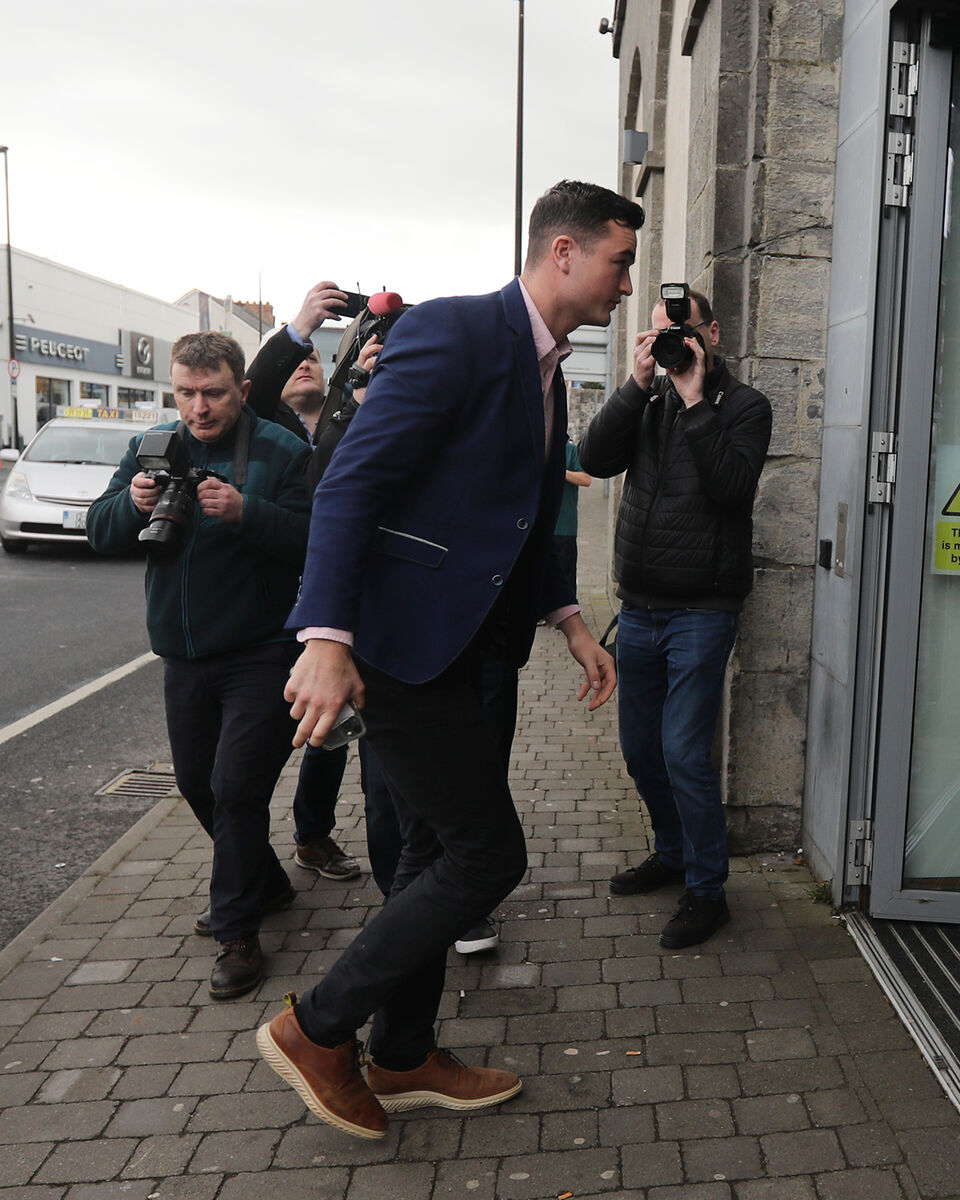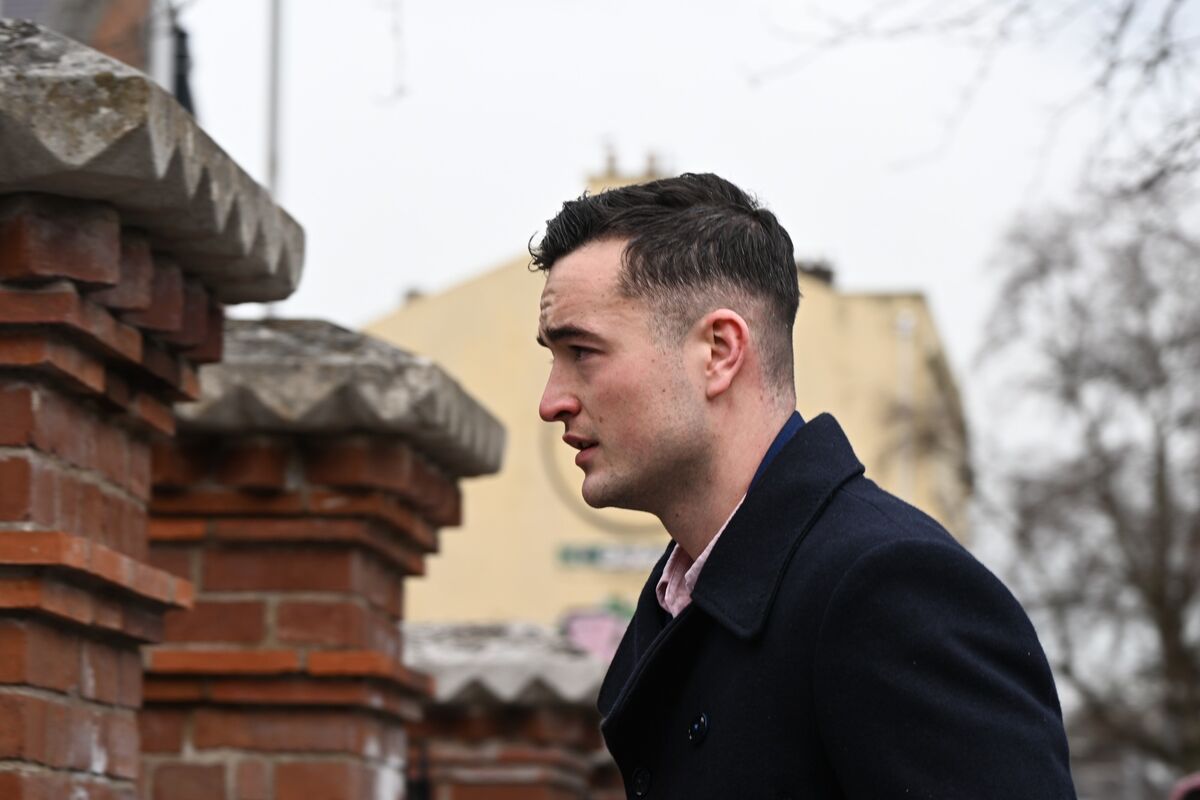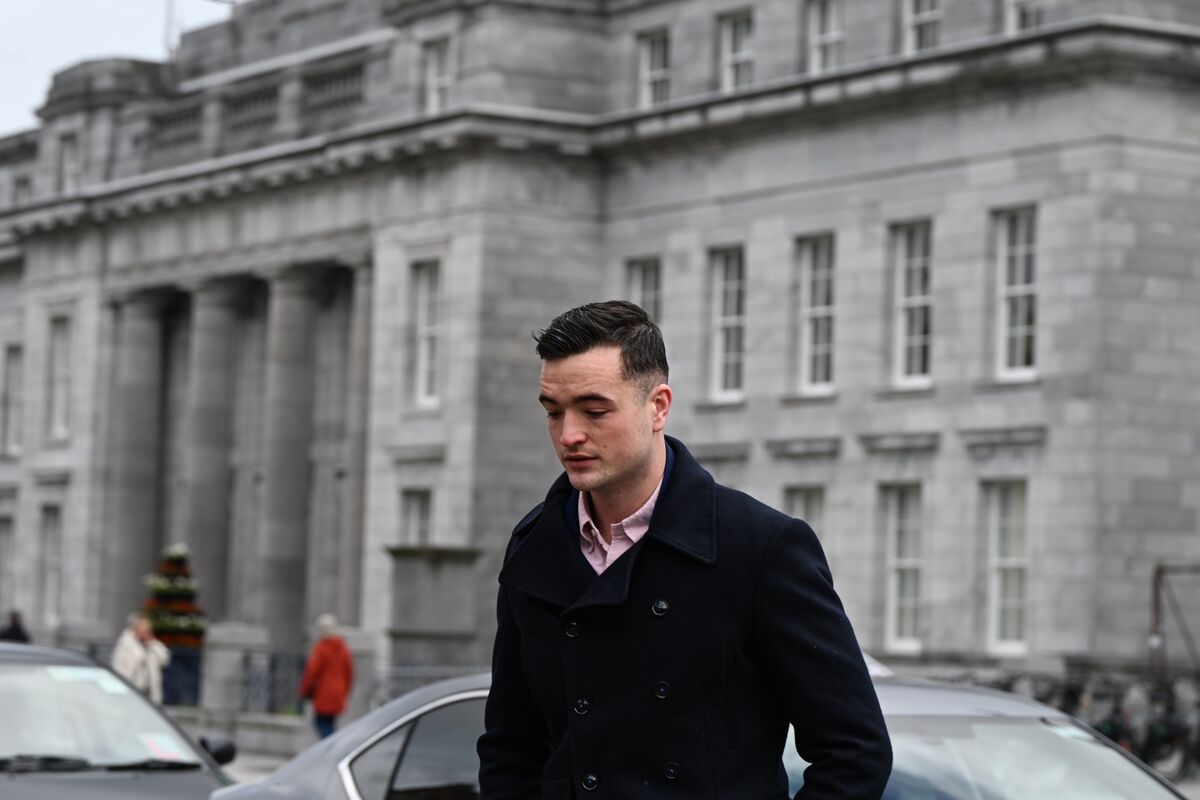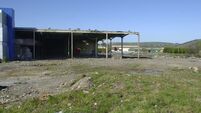Mick Clifford: Kyle Hayes' case exposes contradictions in the GAA’s stance on player conduct

Limerick hurler and All-Ireland winner Kyle Hayes is a lucky man. Picture: Chani Anderson
Some hurlers have all the luck. Take any one of those who have played with Kyle Hayes over the course of his career.
He is an excellent hurler, imbued with the combination of physical presence, hand-to-eye co-ordination, superlative ability to strike a ball and vision. To share a pitch, not to mind a team, with such a player must be exhilarating.
Hayes is a lucky man himself. On Friday, a judge decided that a suspended prison sentence he is serving would not be activated despite his most recent conviction. In March 2024, he was sentenced to two years and 18 months in prison respectively for two counts of violent disorder.

The sentences, to run concurrently, were suspended for two years. He was acquitted of a third more serious charge of assault causing harm. He was also ordered to pay €10,000 in compensation to his victim.
Many observers considered him lucky to escape serving time in prison. The incident, which occurred in 2019, involved Hayes assaulting another young man, Cillian McCarthy, in a Limerick nightclub on the premise that the victim approached a girlfriend of one of Hayes’ group. When they were all thrown out of the nightclub, the attack continued. The victim was punched and kicked while on the ground and it only ended when gardaí arrived and Hayes fled.
Following the sentence, he might have been expected to be extra vigilant in ensuring that he stayed on the right side of the law. It was not to be. In July 2024, three months after he was sentenced, he was recorded speeding at 155km/h in a 100km/h zone on the Cork-Mallow road.
Garda Deirdre Barrett told the court that she believed he had been travelling faster than that earlier and overtook nine cars before cutting in front of the lead car as the dual carriageway merged into a single lane.
“This was a deliberate overtaking and there was no consideration for the safety of the people in the nine other cars or for his own safety,” the garda said. “This wasn’t a momentary lapse. He consciously overtook and put himself, his passenger and other road users in danger.”
Hayes was convicted of dangerous driving in the district court, fined €250 and banned from driving for two years. Last week, Cork Circuit Court denied his appeal against the conviction.
On Friday, at Limerick Circuit Criminal Court, Judge Dara Hayes ruled that a three-month prison sentence, from his suspended sentence, would not be activated if he was deemed suitable for community service.
Apart from what luck has come his way, Hayes can be thankful for the attitude of those in the GAA who backed him. An extraordinary feature of the criminal trial was the character reference provided by Limerick hurling manager John Kiely at the sentencing hearing.
Mr Kiely was effusive in his praise of his player, calling him “someone you could always rely on in the most difficult of circumstances” and that he had “taken responsibility for his actions”. On it went in that vein.
The depiction of the defendant as something of a paragon of virtue was such that the prosecuting counsel, John O’Sullivan, cross-examined Mr Kiely. This is highly unusual. Nearly always evidence of character is uncontested.

Yet, Mr O’Sullivan, a vastly experienced lawyer, felt it necessary to question how Hayes could have accepted responsibility for what he did yet have pleaded not guilty.
He also wondered about the manager’s assertion that Hayes had informed him about what had happened within 24 hours of the incident. The defendant’s position in the trial was that he couldn’t remember much of what happened.
“I’m here to express an opinion of his character,” Mr Kiely replied, yet he appeared to be going much further than that. After the prosecuting lawyer was finished the presiding judge, Dermot Sheehan, had more questions, including about Mr Kiely’s description of what had occurred as “a mistake”.
In effect, the manager of the county team – a highly respected individual both inside and outside Limerick – was questioned as to the validity of a character reference given under oath.
Kyle Hayes’ standing in the GAA didn’t suffer as a result of this most serious criminal conviction. There was no edict from HQ, for instance, that something should be done to note that the organisation was disturbed at the example set by one of its current crop of stars.
This was in contrast to the fate of Rory Gallagher, the GAA coach who had been the subject of allegations of domestic violence from his ex-wife. The Northern Ireland prosecution authority deemed that no charges were merited and the GAA conducted its own investigation.
That resulted in a ban for Mr Gallagher, which was subsequently overturned. Notwithstanding all that, the association president Jarlath Burns felt compelled last January to write to the Naas GAA club expressing concern over Mr Gallagher’s imminent appointment as coach.
Mr Burns pointed to the GAA’s attempts to “tackle domestic, sexual and gender-based violence”. The appointment didn’t go ahead.

There is a major inconsistency in the respective attitudes to Kyle Hayes the player, with a criminal conviction, and Rory Gallagher the coach, who hasn’t even been charged with anything.
Last November, Hayes was selected for an All-Star and received his award on the night from Mr Burns. He was also shortlisted for the Player of The Year award, based on his on field performances in the season.
There is no provision in the All-Star selection to disqualify anybody for off-field behaviour. Interestingly, until around the turn of the century, a player could not receive an All-Star award if he had been sent off at any point during the year.
Today, the award, in an association that correctly sees itself as more than just a sporting organisation, is exclusively about displays of excellence on the field. So 2024, a turbulent and trying year for Hayes, ended on a high.
Everybody is entitled to a break at points during life but luck doesn’t necessarily smile on all those who require a turn. Then there is the spectre of riding one’s luck when things have gone well.
Many who followed Hayes' interaction with the criminal justice system will have been taken aback, first when his name again appeared on a court summons later in the year, and then when the reckless nature of his offence was related in court. After all he had been through, after all the apparent luck that had been bestowed on him, he was back on the wrong side of the law.
It is also obvious that the GAA, through the actions and inactions of various figures of authority within, did little to impress on him the seriousness of what he had been involved in. Still a young man, he would be well advised to note that luck, even the best of it, will only get you so far.









